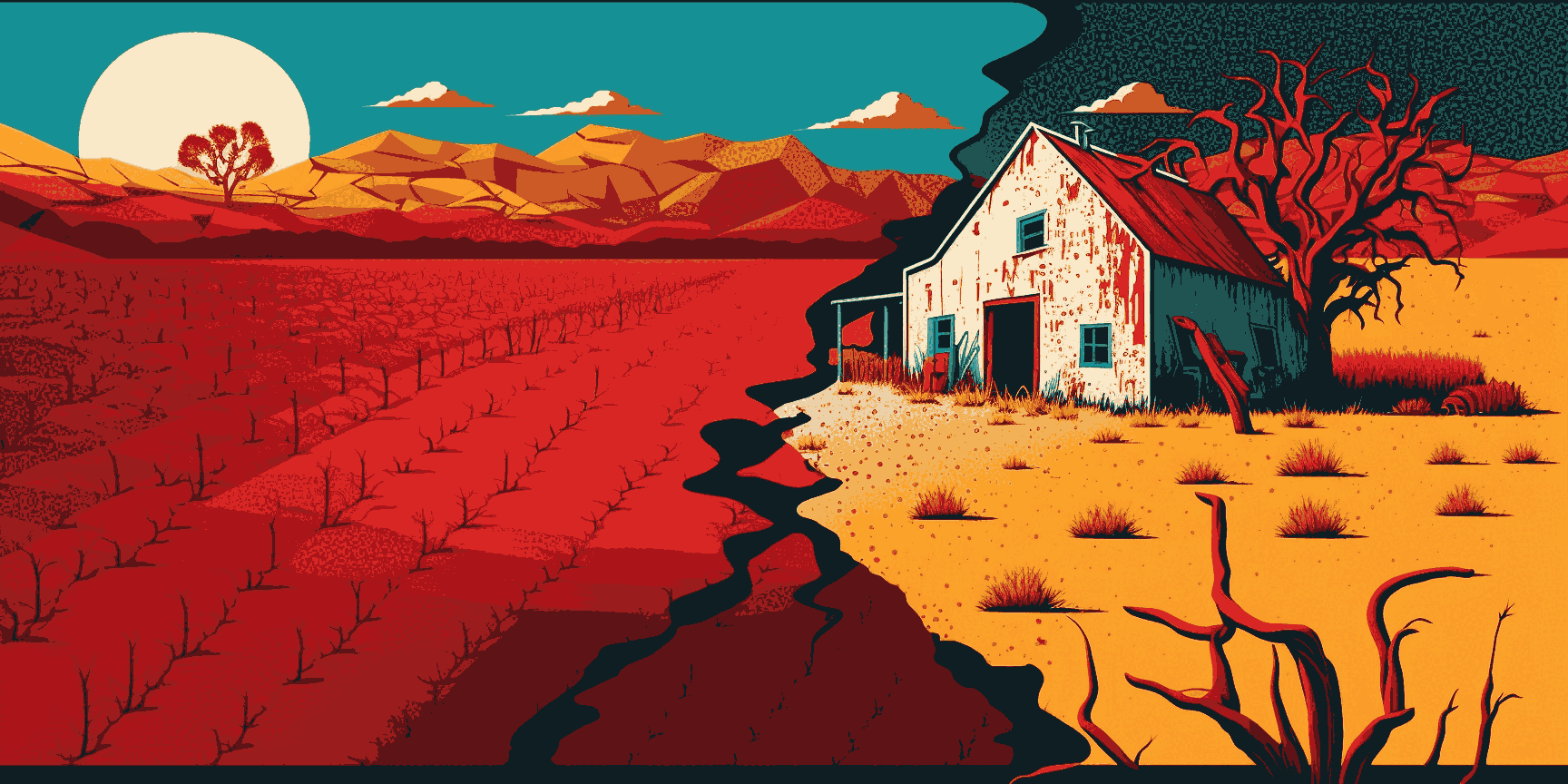Prolonged Droughts Due To Climate Change: Causes, Effects, And Solutions
As global temperatures continue to rise, prolonged droughts are becoming increasingly common. The devastating effects of these droughts can be felt around the world, from lost crops and food insecurity to wildfires and water shortages. In this article, we'll explore how climate change is contributing to prolonged droughts and what we can do to mitigate their impact.
Table Of Content
- Introduction
- Causes Of Prolonged Droughts
- Effects Of Prolonged Droughts
- Solutions To Mitigate The Impact Of Prolonged Droughts
- Conclusion
- Cause
- Is Caused By
Introduction
Droughts have always been a natural part of the earth's climate, but with global temperatures continuing to rise, prolonged droughts are becoming more frequent and severe. These prolonged droughts can have devastating effects on local ecosystems and communities, causing crop failures, food insecurity, and even leading to water shortages and wildfires.
In this article, we'll explore the causes and effects of prolonged droughts due to climate change, and what we can do to mitigate their impact. We'll also discuss how individuals and communities can take action to reduce their contribution to climate change and build resilience in the face of drought.
Causes Of Prolonged Droughts
There are several factors contributing to the increased frequency and severity of prolonged droughts due to climate change. One of the primary factors is rising temperatures, which lead to increased evaporation rates and reduced soil moisture.
Climate change also alters precipitation patterns, resulting in less predictable and more extreme weather events. As a result, some areas may experience prolonged dry spells, while others may experience heavier rainfall and flooding. These changes in precipitation patterns can also exacerbate soil erosion and desertification, further contributing to drought conditions.
Human activities, such as deforestation and the burning of fossil fuels, also contribute to climate change and the severity of droughts. Deforestation can reduce rainfall in certain areas, while burning fossil fuels releases greenhouse gases that trap heat in the atmosphere, leading to higher temperatures and more severe droughts.
Effects Of Prolonged Droughts
The effects of prolonged droughts can be far-reaching and devastating. One of the most immediate impacts is on agriculture, as crops wither and die without sufficient moisture. This can lead to food shortages and price increases, particularly in developing countries that rely heavily on rain-fed agriculture.
Droughts can also lead to water shortages, as rivers and lakes dry up and groundwater supplies are depleted. This can have ripple effects on communities, as access to clean water becomes more difficult and water-related conflicts become more common.
In addition, prolonged droughts can increase the risk of wildfires, as dry vegetation becomes more susceptible to ignition. These wildfires can cause significant damage to ecosystems and homes, and even lead to loss of life.
Solutions To Mitigate The Impact Of Prolonged Droughts
While the effects of prolonged droughts can be devastating, there are steps we can take to mitigate their impact. One of the most effective solutions is to reduce our contribution to climate change by reducing our use of fossil fuels and transitioning to renewable energy sources.
We can also take steps to improve water management practices, such as investing in more efficient irrigation systems and reducing water waste. Reforestation and soil conservation practices can also help to improve soil moisture retention and reduce erosion.
Individuals can also take action to reduce their water usage and build resilience in the face of drought. This includes measures such as using drought-tolerant landscaping, collecting rainwater for irrigation, and investing in water-efficient appliances.
Conclusion
Prolonged droughts due to climate change are becoming increasingly common and severe, with devastating effects on ecosystems and communities around the world.
While addressing the root causes of climate change may be a long-term solution, there are steps we can take now to mitigate the impact of prolonged droughts. By reducing our use of fossil fuels, improving water management practices, and investing in sustainable agriculture, we can help build resilience in the face of drought.
Individuals can also play a role by taking action to reduce their water usage and adopt sustainable practices in their daily lives. Together, we can work to mitigate the impact of climate change and protect our planet from the devastating effects of prolonged droughts.





